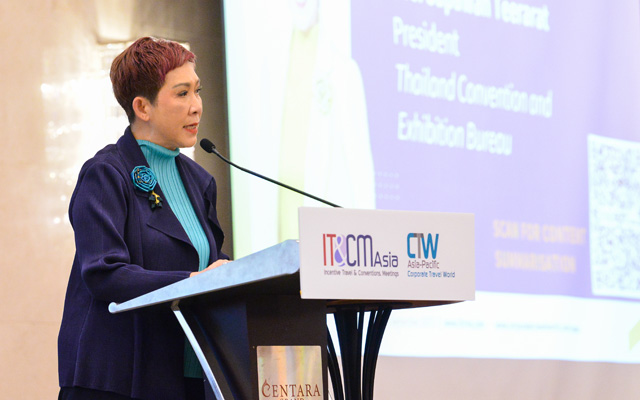IT&CM Asia 2025’s opening keynotes converged on a powerful theme: tomorrow’s business events and travel industries must trade scale for substance, designing experiences that are both authentically local and globally resilient.
Supawan Teerarat, president of the Thailand Convention and Exhibition Bureau (TCEB), said: “Today’s travellers, especially the young generation, are not seeking perfection. They are seeking what is real, meaningful, and true.”

She pressed the audience to think about impact beyond networking and content, urging them to recall moments when an event truly shifted their perspective.
“Imagine a technology conference in a creative city’s design studio – or, envision a business summit in a city of craft, with trust being built side-by-side through shared activity. When a city uses its authentic culture as an engine, events become powerful platforms for cultural preservation,” she said.
Her framework shifts ROI towards ROX (return on experience) and ROR (return on relationship).
“ROI keeps us accountable, ROX keeps us memorable, and ROR ensures we are sustainable. This is how events move from being transactional to being transformative,” she stated.
Meanwhile, Noor Ahmad Hamid, CEO of Pacific Asia Travel Association (PATA), delivered a data-driven outlook projecting 814 million international arrivals in Asia-Pacific by 2027.
He encouraged delegates to consider the broader value of tourist volume, noting that 814 million international visitors represent a significant source of job creation for everyone from SMEs and transport companies to Grab drivers and restaurants.
S&P projects that the Asia-Pacific region will be the main driver of global growth by 2030, added Noor.
“With 60 per cent of the world’s population and 70 per cent of its largest cities, our region is no longer just a cheap labour giver – it is emerging as the world’s centre for innovation, culture, and investment.
“To seize this leadership, we must be ready, and that means strong collaboration between governments, industry, and communities. That is how Asia-Pacific will prevail,” stated Noor.





















